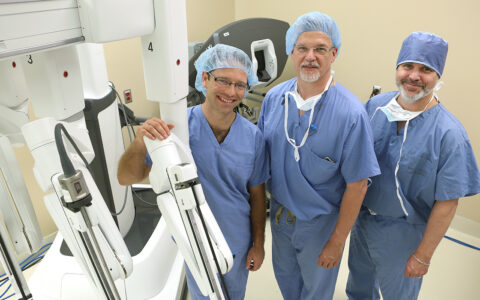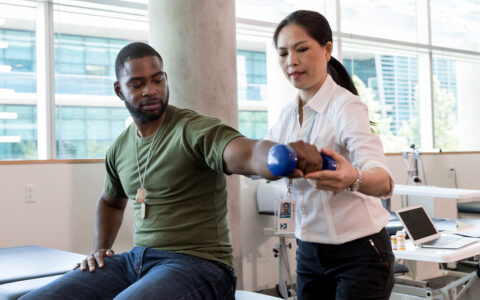Faculty from the Center for Patient and Professional Advocacy (CPPA) at Vanderbilt University Medical Center have recently published a study demonstrating an 87-percent reduction in malpractice claims costs at a single-specialty site in North Carolina.
The retrospective study published in the Journal of Bone and Joint Surgery included data from more than 200 orthopedic surgeons, physicians and physician assistants, including 42 who were identified as high-risk.
“Our results challenge the notion that you can’t address malpractice risk and that claims are just a cost of doing business,” Doub said.
After interventions supporting the pursuit of professional accountability, research partners OrthoCarolina, Curi and CPPA demonstrated a sustained decrease by 87 percent in claims, along with savings of more than $18 million.
“We have learned that most professionals with a pattern of unprofessional behavior respond to peer-delivered feedback supported by discipline-specific data,” said Gerald B. Hickson, M.D., founder of Vanderbilt’s CPPA. “Some physicians need to be directed to appropriate resources for help.”
The research team included Thomas W. Doub, Ph.D., William O. Cooper, M.D., and Thomas F. Catron, Ph.D., from Vanderbilt’s CPPA.
Foundational Research
This work has roots in the 1989 research of Frank A. Sloan, Ph.D., former chair of economics at Vanderbilt University who sought to answer a question: Are malpractice claims predictable or haphazard?
Sloan identified that only a small subset of physicians by specialty — between 2 and 8 percent—are responsible for more than half of all malpractice claims and greater than 70 percent of all associated costs. These findings launched a series of studies at the Center for Patient and Professional Advocacy seeking to understand why some physicians are high risk and, more importantly, what can be done to address the challenge.
“Our results challenge the notion that you can’t address malpractice risk and that claims are just a cost of doing business.”
Subsequent work has revealed that claims are not influenced by the complexity of care or particular patients being more prone to lawsuits, but rather a pattern of disrespect towards patients, coworkers, and established safety practices that is modeled by high-risk practitioners.
The PARS Program
In response, the VUMC team has developed a program called Patient Advocacy Reporting System (PARS) that taps into reports of disrespectful behavior and unsafe practices to identify high-risk professionals. It also supports effective interventions to improve care, outcomes, and professional wellness.
Professionals from OrthoCarolina and Curi made the decision to partner and share data with CPPA in support of service recovery and to capture patients’ stories about disrespect.
The CPPA team received secure data to code, aggregate, and identify clinical team members at risk. Under the program, trained peer messengers shared feedback with at-risk team members. Leadership then would address those who were unable or unwilling to respond to the feedback.
The process since has been applied at nearly 300 sites nationwide.
Growing Interest
“Educating peers on how to sit down with their at-risk colleagues, supported by discipline-specific data, while communicating a commitment to excellence and non-judgement is effective,” Hickson said. “Vanderbilt is the original research pioneer and has the ability to analyze unique datasets with its partnerships.”
“Educating peers on how to sit down with their at-risk colleagues, supported by discipline-specific data, while communicating a commitment to excellence and non-judgement is effective.”
Doub and Hickson say their chief priority is the delivery of highly reliable and consistent care – with as few patient complaints as possible.
“We continue down a path that works,” Cooper said. “Our thoughtful colleagues at CPPA and in our network sites keep identifying new and interesting questions. Through our partnerships, we seek to answer and translate study findings into next steps to make medicine kinder and safer.”




